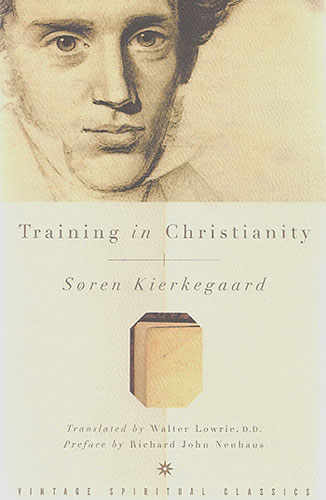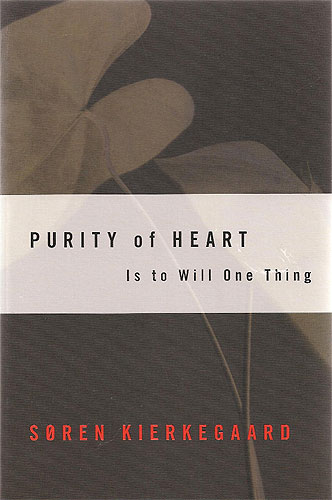Søren Kierkegaard
by Andrew Boyd
Today, an exit. The University of Houston's College of Engineering presents this series about the machines that make our civilization run, and the people whose ingenuity created them.
Jean Paul Sartre gave us No Exit and Being and Nothingness. Albert Camus's name is linked with absurdism — a position that the human search for meaning is pointless. Both were awarded Nobel prizes in literature in the mid twentieth century; though Sartre refused to accept his award.
Sartre and Camus were existentialists; a philosophy that places the self front and center in the search for meaning. Existentialism is associated with atheism, and understandably so. It was existentialist Friedrich Nietzsche who, in The Madman, wrote "God is dead. He remains dead. And we have killed him."
But existentialism isn't inextricably linked with atheism. In fact, Søren Kierkegaard — considered by many the father of existentialist thought — was anything but an atheist. Born in Copenhagen in 1813, Kierkegaard was a product of a devout Lutheran household. His father was a pious, intelligent man whose religious beliefs had a strong influence on his children. One of Kierkegaard's brothers, Peter Christian, served as a bishop.

Kierkegaard rebelled against Christendom, but not Christianity. He was concerned that Christianity in practice had been reduced to rules. In the eyes of the public, it was possible to be a good Christian simply by conforming to those rules. Gone was any responsibility for personal reflection.
Like other existentialists, personal responsibility in confronting life's bigger questions was at the heart of Kierkegaard's philosophy. It was also the force behind his writing. Kierkegaard didn't answer questions. Instead, he prodded his readers to think. To Kierkegaard, there was one and only one way to understand life's meaning: ask yourself.
But unlike most existentialists, Kierkegaard's personal answer, the answer he arrived at for himself, was faith. "Father in Heaven!" he proclaims in Purity of Heart, "What is a man without Thee! What is all his striving but a half-finished work if he does not know Thee? the One who art all!' From Christian Discourses to Works of Love to Training in Christianity, Kierkegaard's writing exudes Christian faith. Not the faith of rote dogma, but the faith of an individual who arrived at a personal relationship with his God from the most frightening of starting points: self. And this differentiated Kierkegaard from Sartre, Camus, and most mainstream existentialists. For himself, Kierkegaard found meaning. Others were left looking. Yet, Kierkegaard would have respected that. To him, the desire to honestly look superseded the answer.
I'm Andy Boyd at the University of Houston, where we're interested in the way inventive minds work.

Notes and references:
"Mainstream existentialism" as used in the essay refers primarily to existentialism other than the various forms of theistic existentialism, which, while smaller than mainstream existentialism, include a number of well regarded philosophers other than Kierkegaard.
Søren Kierkegaard. From the Web site of the Stanford Encyclopedia of Philosophy: http://plato.stanford.edu/entries/kierkegaard/#Life. Accessed June 8, 2010.
Joakim Garff. Søren Kierkegaard: A Biography. Translated by Bruce Kirmmse. Princeton: Princeton University Press, 2005.
Walter Lowrie. A Short Life of Kierkegaard. Princeton: Princeton University Press, 1942.
All pictures by E. A. Boyd.